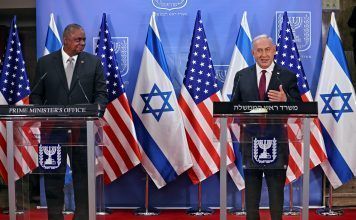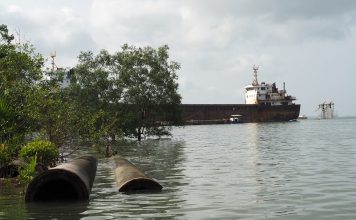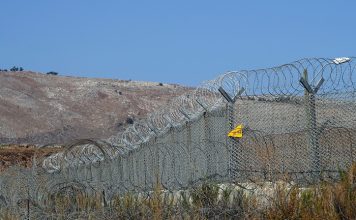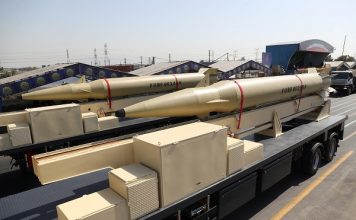By Ahmad Rafat
China’s efforts to expand its sphere of influence significantly in the Middle East and Africa in recent years have been a concern for the West. While China previously limited its aim to exploring economic opportunities in these countries, it has now taken an active role in regional politics with some success.
After experiencing massive economic growth in the 1970s and 80s, China became a global economic power. Its ability to manufacture goods and even weapons at a low cost enabled China to conquer African and Middle Eastern markets.
China significantly broadened its political and military interests in the Middle East and Africa in the succeeding decades. Beijing established strong diplomatic, military, and economic ties with all African and Middle Eastern countries.
Today, China is the principal economic partner of Saudi Arabia, the United Arab Emirates (UAE), and the Islamic Republic of Iran. China’s exports to Saudi Arabia and the UAE have risen by 290 percent and 75 percent in the past five years, respectively.
China’s success in establishing close diplomatic ties with the Middle Eastern countries could stem from the fact that it has never been a colonial power, unlike other global superpowers such as the U.S., Europe, and Russia.
In addition, Beijing never takes sides in regional conflicts and remains neutral. For instance, China remained neutral during the Iran-Iraq War (1980-88) and has never taken sides in the Arab-Israeli conflict.
Undoubtedly, China has been the principal customer of Persian Gulf oil in the past three decades, given the significance that oil and gas have, which extends well beyond their economic value. Some believe that China’s dependency on the Persian Gulf oil and gas will only increase in the next two decades.
By contrast, the U.S. does not depend on energy sources from the Persian Gulf, and Europe has recently reduced its oil and gas imports from the Persian Gulf.
China has established close ties with the Persian Gulf States and North African countries with relative ease because it does not interfere in the internal affairs of those governments, especially as regards human rights and democracy issues.
Given the governing systems in the countries of the region, China’s policy of non-interference has enabled Beijing to accomplish its objectives effortlessly, including the sale of weapons to them. The Islamic Republic buys most of its military equipment from China, given that stringent sanctions prevent it from purchasing any from the West.
After the U.S. Congress banned the sale of missile technology to Saudi Arabia in 1980, Riyadh bought those weapons from China. Similarly, after the U.S. refused to sell military drones to the UAE, the latter turned around and purchased them from Beijing.
In the spring of this year, Saudi and Chinese manufacturers signed a memorandum of understanding to build the first drone factory in Saudi Arabia as part of a broader Saudi national plan (2030), allocating half of its military spending to domestic production.
Saudi Arabia has developed its domestic production of ballistic missiles with China’s help. Beijing has also sold planes, missiles, and drones to the UAE, Egypt, Iraq, Jordan, Turkey, Morocco, and Algeria.
Some countries in the region, such as Saudi Arabia, have concluded that close ties with China can also improve their relationship with the U.S., because a formidable rival to Washington in the region will strengthen these countries’ position in talks with the West.
Some U.S. policies in recent years are to blame for pushing Middle Eastern countries closer to China. For instance, former U.S. President Barack Obama and his administration supported the Arab Spring in the early 2010s, as well as the nuclear talks between the U.S. and the Islamic Republic.
The China-UAE “Falcon Shield-2023” joint air force exercise in the northwestern Chinese region of Xinjiang, scheduled for an undisclosed date in August, resulted from Beijing’s closer cooperation with countries in the Middle East.
The joint air force drill follows a contract signed between the two countries in February, under which China exports fourth-generation L-15 training fighter jets to the UAE. The two countries also plan to conduct a joint naval exercise in the Persian Gulf at the end of summer.
The UAE announced in May that it would no longer take part in the Persian Gulf naval drill conducted by the U.S.-led Combined Maritime Forces (CMF) coalition.
The CMF, founded in 2001, initially had 12 members. That number has increased to 34 countries in the past two decades. The CMF’s central command is in the U.S. naval base in Bahrain.
EXCLUSIVE – China’s CCPC Takes Centre Stage in Iran, Venezuela Oil Trade-Sources
China has recently signed major strategic agreements with Middle Eastern and North African countries. It has close ties with all countries in the Middle East.
Although Beijing prefers to maintain its influence in the Middle East through the “Principle of Positive Balance,” i.e., adopting a neutral stance and not making enemies, it has shown great interest in acting as a mediator in security issues in Iraq, Libya, Sudan, Yemen and even in the Israeli-Palestinian conflict.
For instance, Beijing recently mediated between Iran and the UAE in their dispute over the ownership of the three Persian Gulf Islands of the Greater and Lesser Tunbs and Abu Musa.
In March of this year, the world was stunned when then Secretary of Iran’s Supreme National Security Council, Rear Admiral Upper Half Ali Shamkhani, and Saudi Minister of State and National Security Advisor, Musaid bin Mohammed Al-Aiban, signed an agreement in Beijing, restoring diplomatic ties between the two countries which had been severed since 2016.
On Jan. 2, 2016, mobs attacked Saudi missions in Tehran and Mashhad, the capital of the northeastern province of Khorasan Razavi, after Saudi authorities executed a Shia cleric, Sheikh Nimr Baqir al-Nimr.
Other events that increased tensions between the Islamic Republic and Saudi Arabia included Iran’s support for the Houthi rebels in Yemen and Tehran, and Riyadh’s support for rival factions in Lebanon.
On Aug. 7, Saudi Arabia hosted a conference in Jeddah on finding a diplomatic solution to the war in Ukraine, attended by representatives from 40 countries, the EU, and the UN.
Chinese representatives played an active role in the talks, starkly contrasting an earlier meeting on the same issue held on June 24 in Copenhagen, which China did not even attend.
Some Arab sources believe the meeting would not have happened without China’s cooperation, which shows the increasing influence of Beijing in the Persian Gulf States.












